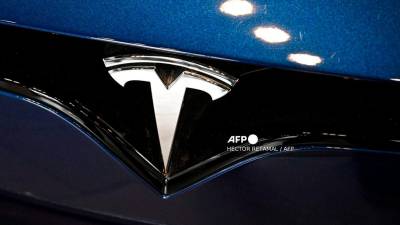NEW YORK: Tesla reported higher global vehicle deliveries for the third quarter, reversing a previous declining trend.
The electric vehicle maker delivered 497,099 vehicles between July and September, marking a 7% increase compared to the same period last year.
This positive result follows three consecutive quarters of declining sales partly attributed to backlash against CEO Elon Musk’s political activities.
While Tesla did not provide a regional sales breakdown, many automakers experienced a significant jump in US electric vehicle sales.
This surge occurred ahead of the September 30 expiration of a federal tax credit for electric vehicle purchases.
The tax credit phaseout was part of sweeping fiscal legislation backed by President Donald Trump.
Tesla’s recent sales challenges have included growing competition from Chinese EV manufacturers and weaker-than-expected demand for its Cybertruck model.
Musk has consistently promoted Tesla’s growth potential based on its autonomous driving and artificial intelligence technology.
Some industry analysts have expressed disappointment with Tesla’s slow progress in developing more affordable electric vehicles.
Hargreaves Lansdown analyst Matt Britzman described Tesla’s latest sales figures as having “smashed expectations.”
Britzman noted the sales “rush” was clearly linked to the expiring US tax credit incentive.
He warned that Tesla now faces the challenge of maintaining momentum without the tax credit support.
Musk had previously cautioned investors about a potentially “rough” period following the tax credit expiration.
The federal incentive provided up to $7,500 per vehicle for qualifying electric car purchases.
Other major automakers including General Motors, Ford, and Stellantis also reported stronger US sales in the third quarter.
Foreign brands like Toyota, Honda, and Kia similarly benefited from the pre-credit expiration sales surge.
This quarterly sales pattern mirrors a previous uptick when consumers rushed to buy vehicles ahead of announced tariffs.
JPMorgan Chase analysts reported the annualized auto sales rate reached 16.4 million vehicles in September.
Their analysis also cited a buoyant stock market as contributing to stronger vehicle sales.
The JPMorgan report predicted an “eventual moderation” in sales, likely beginning in October.
Cox Automotive chief economist Jonathan Smoke described 2025 auto sales thus far as stronger than expected.
Smoke attributed the robust sales performance to a stronger economy and auto market during a recent briefing.
Automakers now face decisions about how much of recent tariff costs to pass through to consumers.
New tariffs have added approximately $5,500 to the average cost of imported vehicles.
Smoke predicted consumers will likely see average vehicle prices increase by 4% to 6% within the next year.
Some specific models could experience price increases as high as 8% according to his analysis.
Cox analysts identified the introduction of 2026 model year vehicles as a likely opportunity for price adjustments.
They noted that current retail vehicle inventories remain “relatively tight” compared to last year’s levels. – AFP
